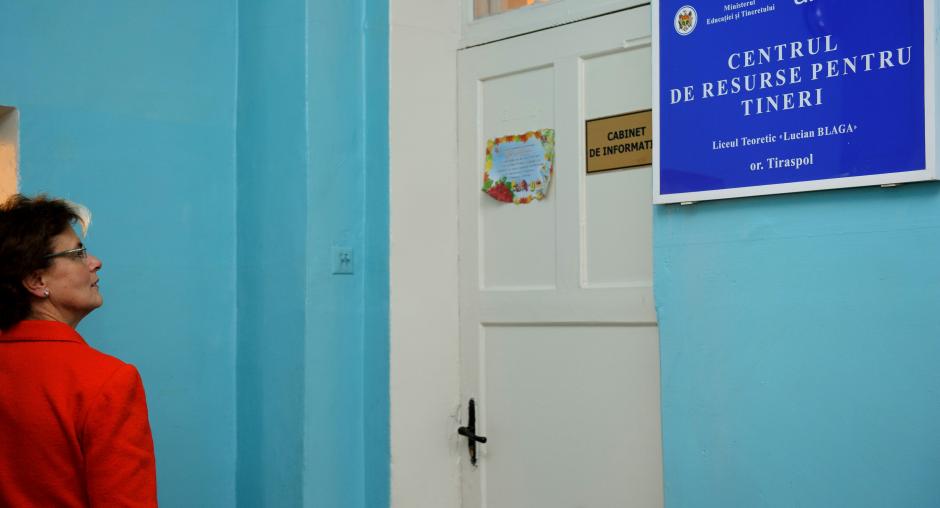High Commissioner on National Minorities expresses concern over future of Latin-script schools in Transdniestria

OSCE High Commissioner on National Minorities (HCNM) Astrid Thors, on a trip to Chisinau and Tiraspol on 7 and 8 July 2014, expressed her concern that schools teaching in the Latin-script could face closure by the authorities in Tiraspol if an agreement is not reached before the start of the next school year on 1 September.
The High Commissioner was visiting to monitor the current situation of the schools in consultations with the Moldovan and Transdniestrian chief negotiators in the Transdniestrian settlement talks.
“The right of children to receive education in their mother tongue should be fully respected,” Thors said. “They should not become the victims of political disputes. Closure of one or more of the schools could further deteriorate relations between Chisinau and Tiraspol and could aggravate tensions in the region.”
While welcoming recent diplomatic attempts of participants involved in the 5+2 Transdniestrian settlement process to broker an agreement on the status of the Latin-script schools, Thors said: “I am deeply concerned that the positions of the sides are too far apart to allow this issue to be quickly resolved.”
To avoid the closure of these schools, Thors urged the sides to try to swiftly reach an agreement in line with the OSCE recommendations in the report, Moldovan-Administered Latin-Script Schools in Transdniestria- Background, Current Situation, Analysis and Recommendations.
The issue of the Latin-script schools has remained unresolved for many years. In 2004, then High Commissioner Rolf Ekéus condemned the attempted closures of four Moldovan-administered schools from the Transdniestrian-controlled towns of Tiraspol, Bender and Rybnitsa. In 2012, the HCNM and the OSCE Mission to Moldova published a report on the situation of the schools that presented the sides with recommendations on a possible solution that would allow the schools to continue functioning, pending a final resolution of the Transdniestrian conflict.
